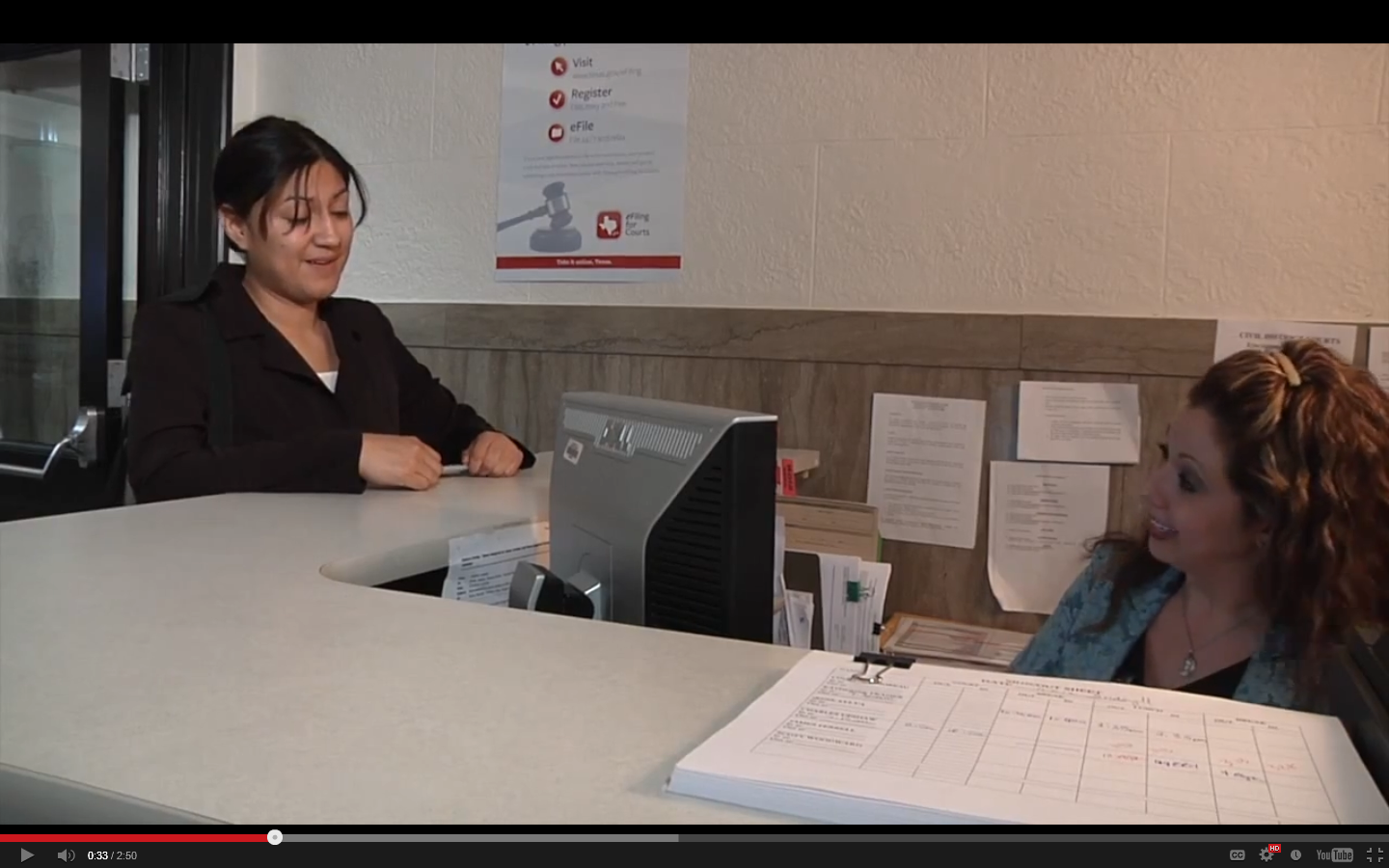
Will I have to pay to file my case?
When you file your Petition at the clerk's office, you will have to pay filing fees unless you show that you cannot afford the fees. This page explains filing fees and the process for showing the judge that you cannot afford to pay them if your request not to pay the fees is challenged.
- Filing fees are different. When you take your Petition to the clerk's office, the clerk will tell you how much the filing fee is. You can also check on the clerk's website for a listing of the filing fees. Filing fees are different for each kind of case and each county.
- What to do if you cannot afford to pay filing fees?
- Statement of Inability to Afford Payment of Court Costs. If you are represented by a legal aid provider, receiving public benefits, or believe you cannot afford to pay the filing fees, you can file a Statement of Inability to Afford Payment of Court Costs, with the clerk. Rule 145 of the Texas Rules of Civil Procedures addresses these statements.
- Sign the Statement. You do not have to sign the Statement in front of a notary public, but it must be made under penalty of perjury. This means that when you sign the form, you are swearing that the information you have put in the form is true. You may attach evidence of your inability to afford payment to your Statement.
- Hearing on the Statement. Your Statement might be opposed or challenged. If so, you will need to prove in a hearing before the judge that the information about your finances in the Statement is true. At that hearing, you will have to present evidence to the judge about your income and expenses to prove that you are not able to pay court fees. The court may or may not approve your request not to pay filing fees.